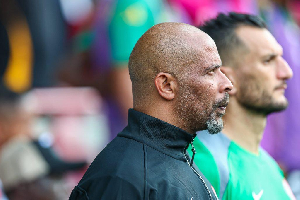The Nigerian National Petroleum Company Limited on Friday declared that its long-awaited re-entry into Ogoniland would be guided by justice, reconciliation and inclusive development, describing the move as a turning point in Nigeria’s oil and gas history.
Speaking in Abuja, the Group Chief Executive Officer of NNPC Ltd, Bashir Ojulari, said the renewed effort was not just about tapping crude resources but about confronting the past, healing wounds, and building trust with the Ogoni people.
“The re-entry into Ogoniland is not just about oil and gas. It is about justice, healing, and charting a new future for our nation,” Ojulari said in a statement signed by the NNPCL Chief Corporate Communications Officer, Andy Odeh.
He explained that the company had already embarked on trust-building initiatives, including road construction, infrastructure upgrades and economic empowerment programmes, stressing that the new approach would prioritise dialogue, equity and sustainability rather than production volumes alone.
“NNPC Ltd is determined to transform Ogoniland from a symbol of conflict into a beacon of reconciliation, renewal and sustainable progress,” the GCEO added.
The development is being hailed as one of the boldest examples of President Bola Tinubu’s Renewed Hope Agenda in action, with government officials framing it as proof that resource development can go hand-in-hand with environmental stewardship and inclusive nation-building.
Ojulari described the breakthrough as both a test and an opportunity for Nigeria, insisting that oil wealth must now translate into visible prosperity for host communities.
He singled out the National Security Adviser, Mallam Nuhu Ribadu, for convening the Presidential Committee that brought divergent interests together to reach consensus. The committee, chaired by Professor Don Baridam, was credited with building trust through months of transparent and methodical engagement with stakeholders.
“The lesson is that this journey cannot be driven solely by production volumes. It must be anchored on justice, equity, sustainability, and most importantly, collaboration with the very people whose land bears this wealth,” Ojulari noted.
Ribadu, in his remarks, said the outcome demonstrated that sustainable progress is possible through collaboration, while Baridam thanked the President for his unwavering commitment to dialogue and inclusivity.
The re-entry comes nearly three decades after oil exploration in Ogoniland was halted following violent clashes, protests and allegations of environmental devastation. The Ogoni struggle, championed by the late activist Ken Saro-Wiwa and the Movement for the Survival of the Ogoni People drew global attention to the environmental and social costs of Nigeria’s oil industry.
Oil production in the area was suspended in the 1990s after Shell’s exit, leaving vast reserves untapped but also sparking long-running disputes, litigations and international campaigns. Successive governments struggled to rebuild trust until the launch of the Ogoni cleanup project in 2016, which has faced criticism over its slow implementation.
Ojulari stressed that Nigeria’s new approach to Ogoni oil was not only a domestic milestone but also a global example of reconciling energy development with community benefit and environmental protection.
“This is more than a Nigerian story. It is a classic example of how a resource-rich nation can reconcile energy security with community aspirations,” he said.
For Nigeria, he added, progress is now being redefined as a partnership between government, industry and the people.
Business News of Sunday, 28 September 2025
Source: www.punchng.com













